I watched all of season three of Netflix's Tour de France series – these are the six things that surprised me
The GC battle is well told, but there are some notable absences, as well as a plot inaccuracy

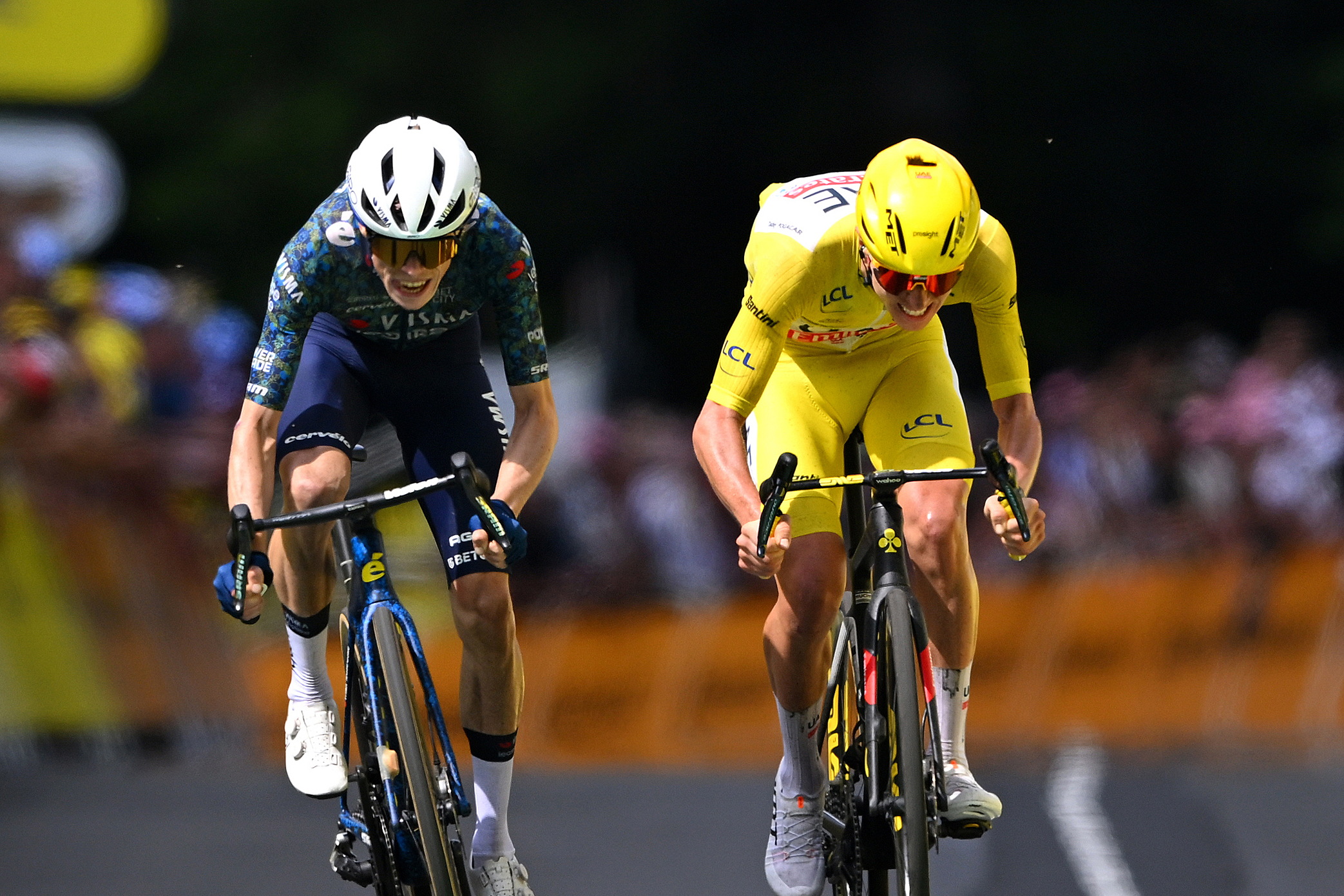
The latest race content, interviews, features, reviews and expert buying guides, direct to your inbox!
You are now subscribed
Your newsletter sign-up was successful
This article contains spoilers.
The third season of Netflix’s Tour de France: Unchained series is out today, the final one to be produced.
It chronicles the 2024 race – an edition that I was at, reporting on the ground – and ahead of its release, I was granted press access to watch all eight episodes, which I duly did over the weekend.
Overall, I enjoyed it. There’s good, albeit not groundbreaking, behind-the-scenes access into the teams, and it rightly threads the narrative through Tadej Pogačar’s dominance. Of course, the task of distilling almost 84 hours of racing into eight 40-minute episodes is not an easy one, and naturally plotlines get rushed, overlooked, or even stitched together strangely.
Having watched it all, here are six things that surprised me about season three – including one plot inaccuracy.
Pogačar's villain arc
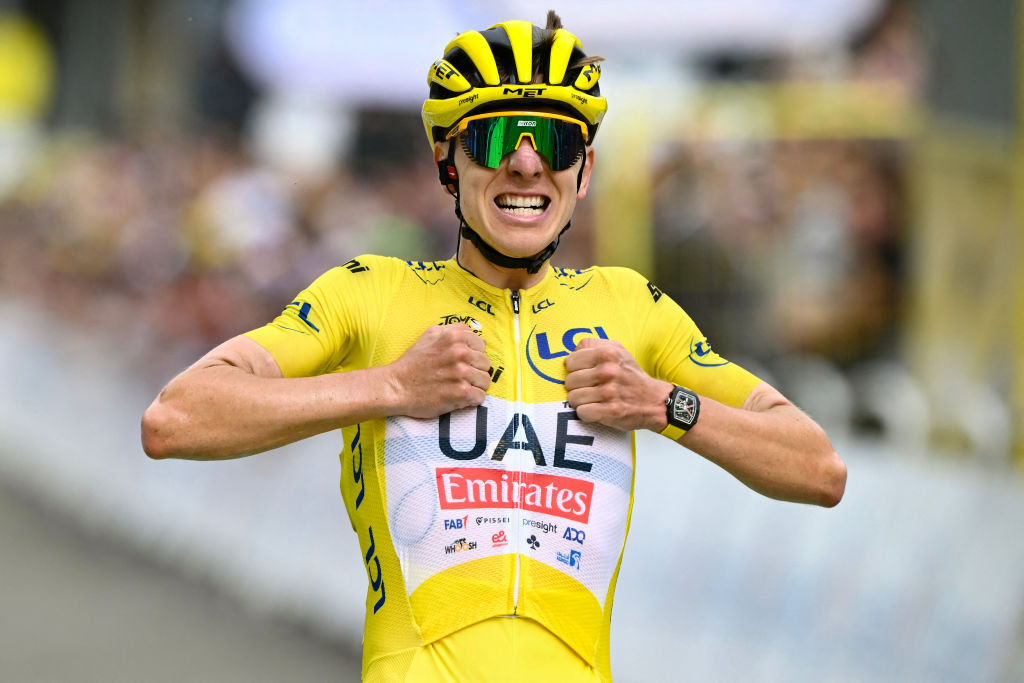
How do you add tension to a foregone conclusion? Tadej Pogačar wore yellow on all but two stages last year, winning six times, and sealing the overall by more than six minutes. It was a total romp, the most convincing win of the modern era – but that wouldn't make for very tense television, would it?
Instead, season three of Unchained lays out the narrative as ‘us vs them’, or rather everyone else vs Pogačar. He is presented as an all-powerful force who stifles the competition, while the rest of the teams fight for scraps.
The latest race content, interviews, features, reviews and expert buying guides, direct to your inbox!
There’s not a lot of behind-the-scenes content of UAE Team Emirates – certainly not as much as we see within Visma-Lease a Bike – and while Pogačar provides piece-to-camera interviews, he’s still presented as a sort of villainous stage win glutton. I expected the series to be more a celebration of his achievements, but that doesn’t really come until the final minutes of the last episode.
Vingegaard's candidness
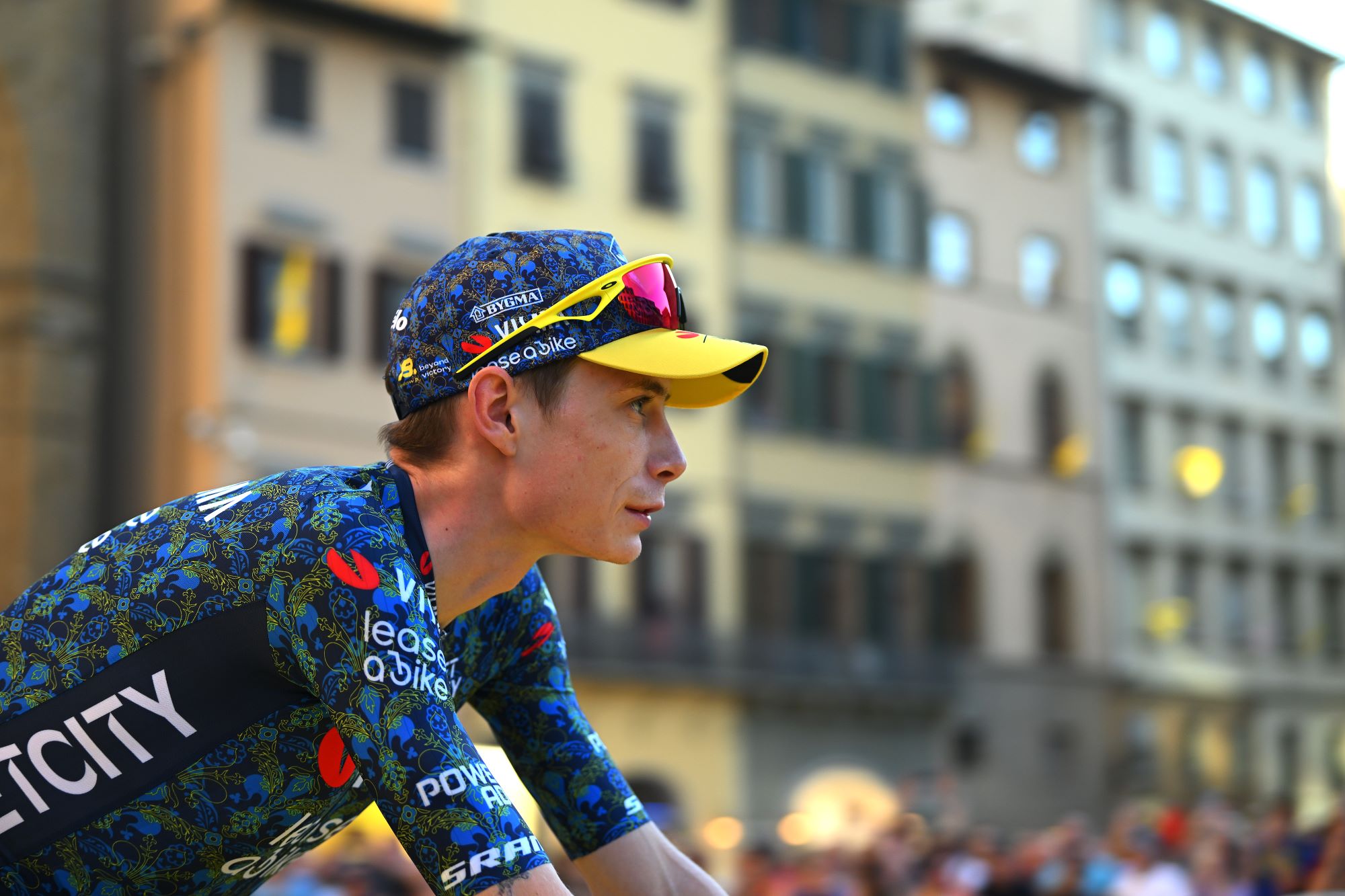
Conversely, Jonas Vingegaard enjoys a more sympathetic portrayal as season three’s counter-hero.
We hear about his crash at Itzulia Basque Country (“I was thinking about whether I was going to live or die”), witness his victory over Pogačar on stage 11, and share his pain as he loses time in the final weekend. Throughout, he is open, honest and emotional, and there are some really tender moments with his family.
“I think 20 years ago, nobody dared to show emotions, but now it only shows that you’re human,” Vingegaard says in episode eight. Any new fans of the sport will empathise a lot with his character.
Dialled up Frenchness
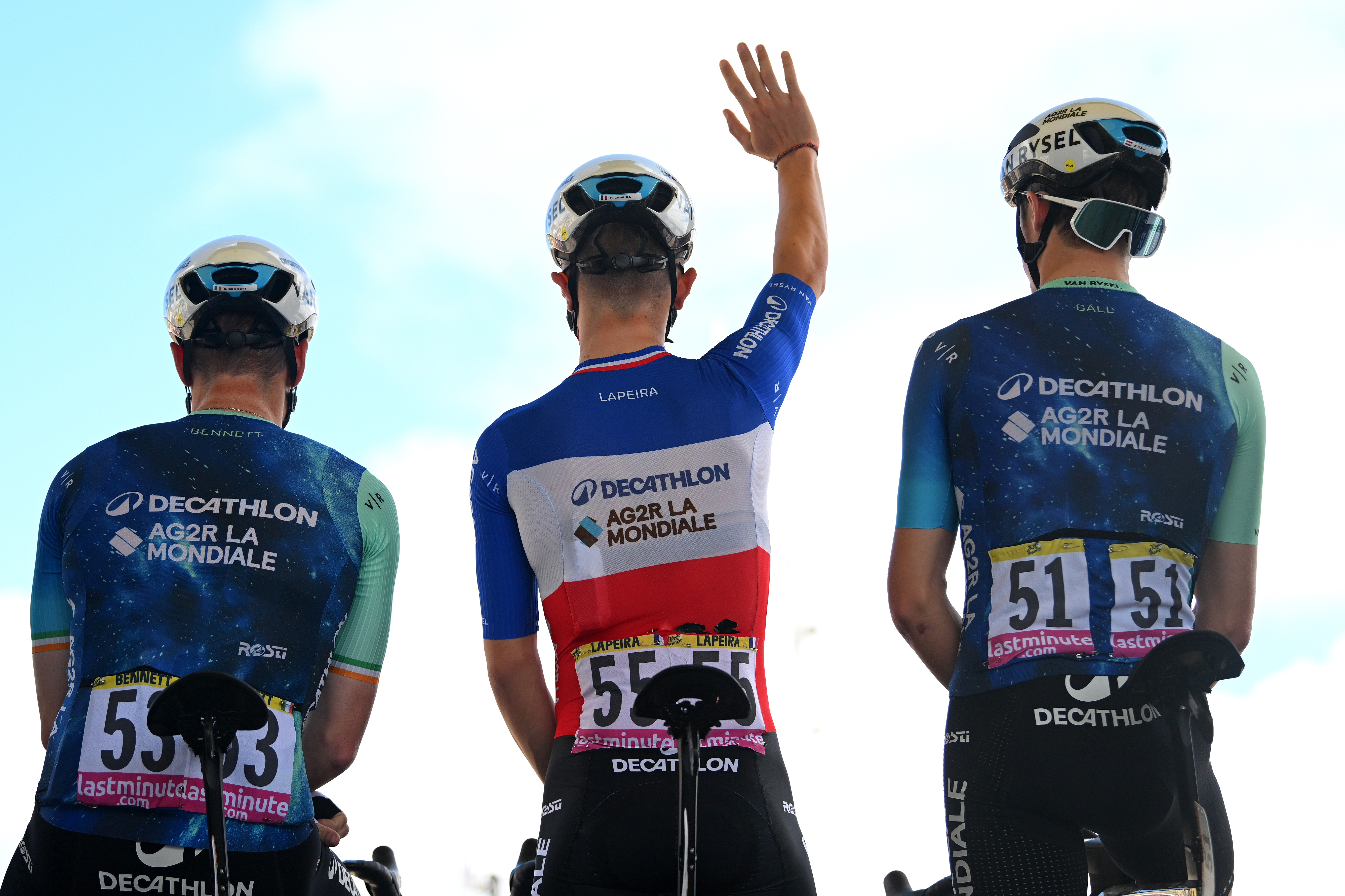
Don’t get me wrong, I expected it to have a French feel. The series was made for Netflix France; it was co-produced by a French company, Quad; and the race took place, mostly, in France. But is season three too French?
The first episode embeds inside dsm-firmenich PostNL and Arkéa-B&B Hotels, whose home riders Romain Bardet and Kévin Vauquelin won the initial two stages. It makes for a solid season opening, thanks particularly to the emotion within Arkéa.
Episode three, however, is less gripping, told almost exclusively from the view of Decathlon AG2R La Mondiale. Save for candid cameos from Sam Bennett (who calls himself a “stupid c****” at one point, and leaves an interview early to throw up), this episode appears mostly to carry the purpose of presenting a home team to a French audience.
In fact, it’s clear throughout the series that it’s targeted to the French. The narrative leans on retired French pro Yoan Offredo for expert comment, Remco Evenepoel conducts his piece-to-camera interviews in French, and when social media posts appear on the screen, they do so in – yes, you guessed it – French.
I’m a real Francophile, so I liked it. But I wonder if this is part of the reason the series never captivated a wider global audience? It hasn’t been commissioned for a fourth season.
A timeline inaccuracy
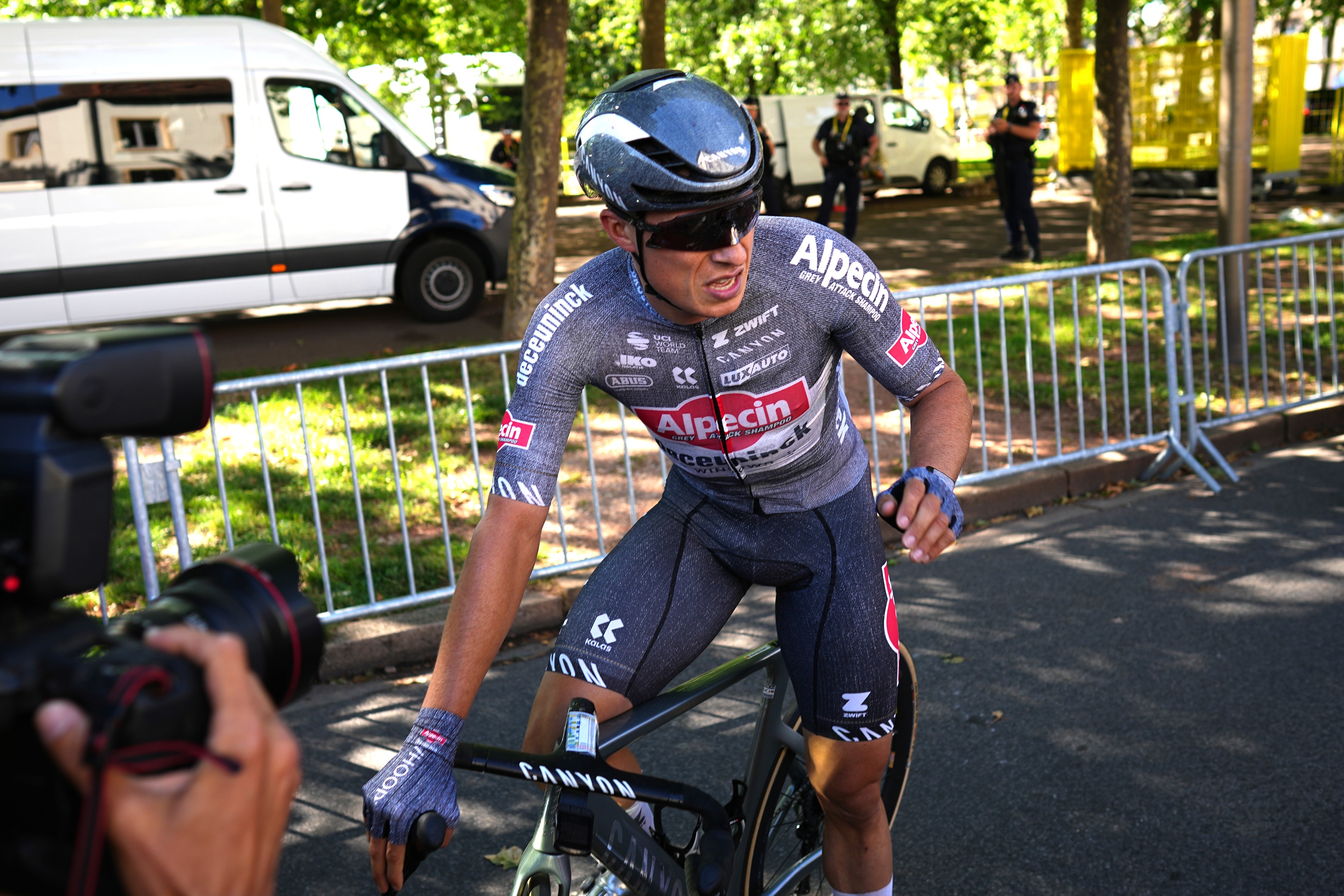
Alpecin Deceuninck’s Jasper Philipsen isn’t a big fan of the Netflix Tour de France series, saying in a recent interview with HLN that it “look[s] for sensation to boost the viewing figures”.
Well, Jasper’s mind is unlikely to be swayed by season three.
In episode six, titled ‘History Makers’ and dedicated to Mark Cavendish and Biniam Girmay, Philipsen is presented as a frustrated sprinter who can’t buy a win. (In reality, he won three stages).
The Belgian is also the subject of a plotline misrepresentation I spotted. Teeing up stage 12, the voiceover says Philipsen needs to win “to turn [Alpecin-Deceuninck’s] Tour de France around” (sidenote: he had actually already won on stage 10). He then ends up finishing fourth in the sprint, Girmay winning again, before the series shows him swearing and kicking the inside of the team bus.
It's a dramatic scene, but it's not in chronological order. This post-race reaction actually came on stage six, when Philipsen was relegated in Dijon. How do I know? I was there. The Netflix cameras even capture me waiting outside the bus.
Although it’s not unusual to see documentaries re-stitch events – in this case stage 12’s finish with stage six’s reaction – it’s a reminder to take it all with a pinch of salt.
The polka dots are missing
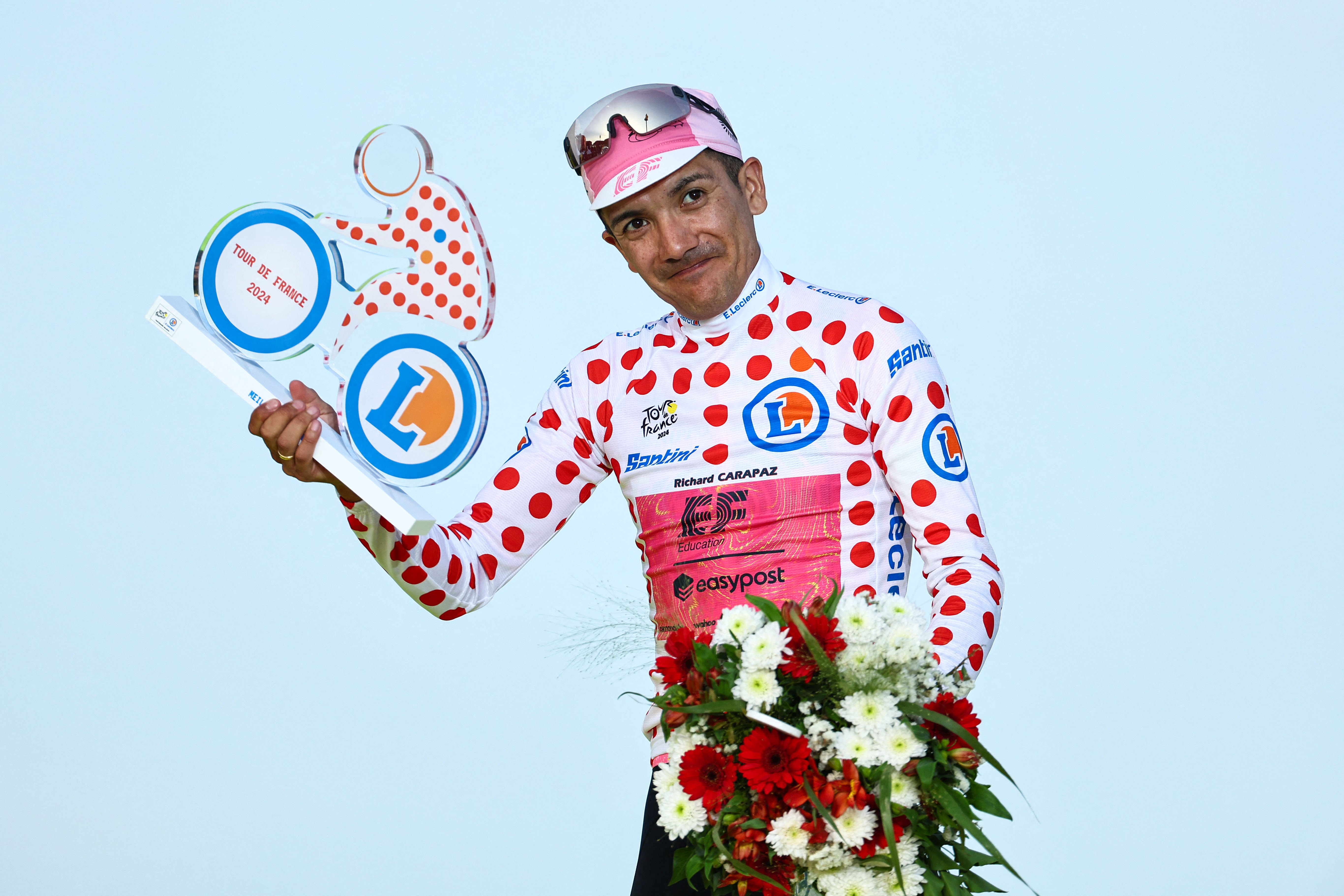
Back in 2023, when season one of Unchained was released, a non-cycling friend of mine watched it and came to me with a list of follow-up questions. The first one on her list: “What’s the red spotty jersey?”
The King of the Mountains classification, despite being important to the race, is never really tackled in Unchained, and that doesn’t change in season three.
I can’t recall hearing a single mention of it, actually – not even in episode seven, titled ‘King of the Mountain’, which follows Richard Carapaz, the eventual winner of the polka dot jersey. It was a significant moment for EF Education-EasyPost, a team that had never before won a classification jersey at the Tour, but it didn't make the final cut.
Notable absences
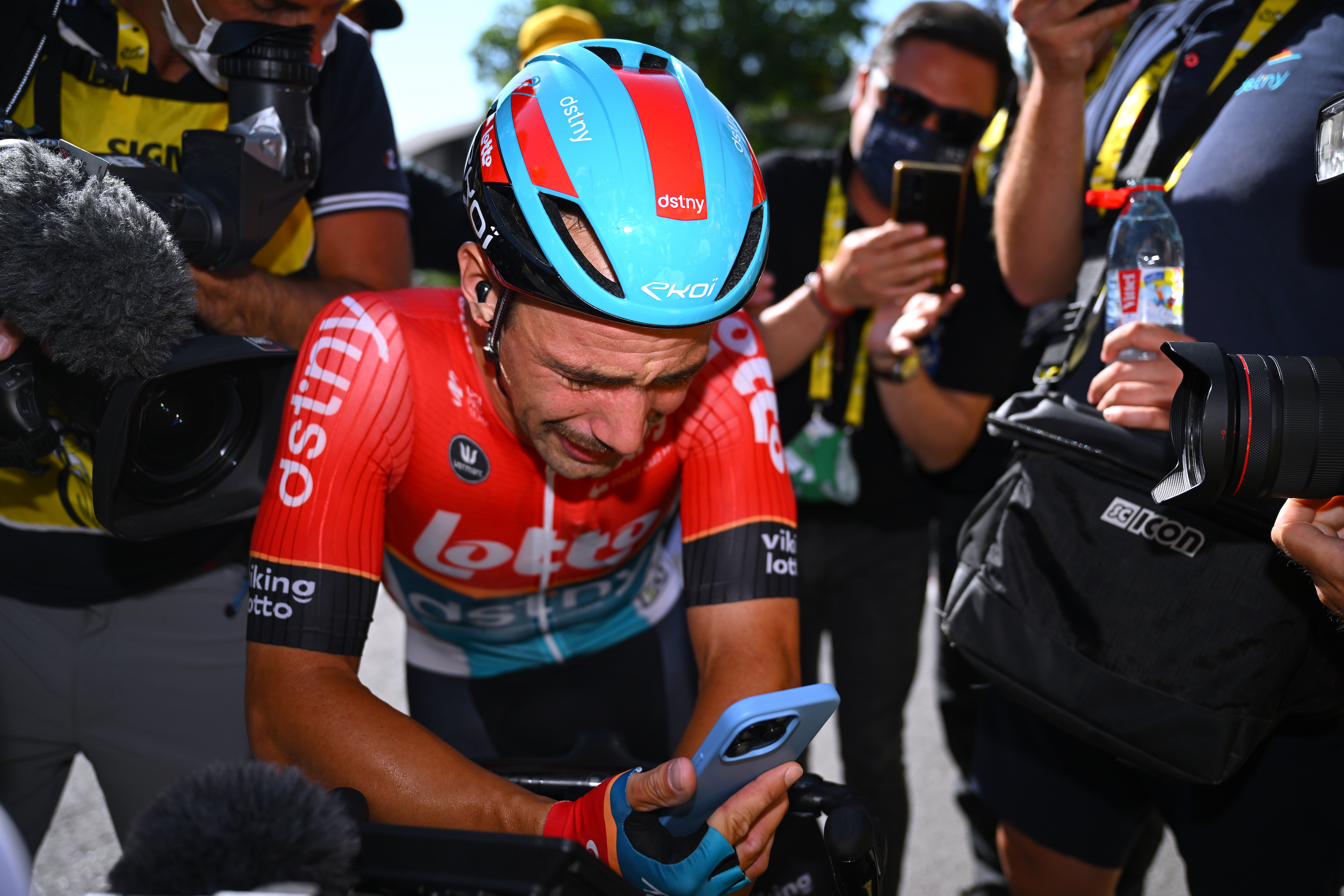
For the most part, the series does a good job of capturing the three weeks; we witness most of the 21 stage victories, and the GC battle is well told. Still, we don’t see Dylan Groenewegen’s win in Dijon, Philipsen’s treble, or Victor Campenaerts’s victory on stage 18.
This last one is a particularly sad absence. For fans who watched last year’s Tour, Campenaerts’s breakaway win was one of the high points. His emotional interview afterwards – in which he spoke of stalling contract negotiations, family sacrifices, and his new-born son – was a touching and poignant moment.
Campenaerts’s Lotto are one of seven teams who are not covered in the series: the others are Jayco AlUla, Lidl-Trek, Bahrain Victorious, IPT, Movistar and Uno-X. It doesn’t take away from the narrative, but there’s a feeling that some stories go untold.
Conclusions
I'll admit, it's easy for me, someone who works in the industry, to pick at the seams of this series, but it wasn't really made for seasoned fans.
Rather, Unchained was a project for the masses, those with a fleeting interest in cycling, or no prior knowledge at all. It doesn't tell the story of the Tour de France, but rather a story of it, a simplified version.
Its mission was to tell the world about how tough professional cycling was, and increase the popularity of our sport. Anything that tries to do that gets my support.
I'd recommend watching season three – and seasons one and two, if you haven't already. From a fan perspective, it will be missed when it doesn't return next year.
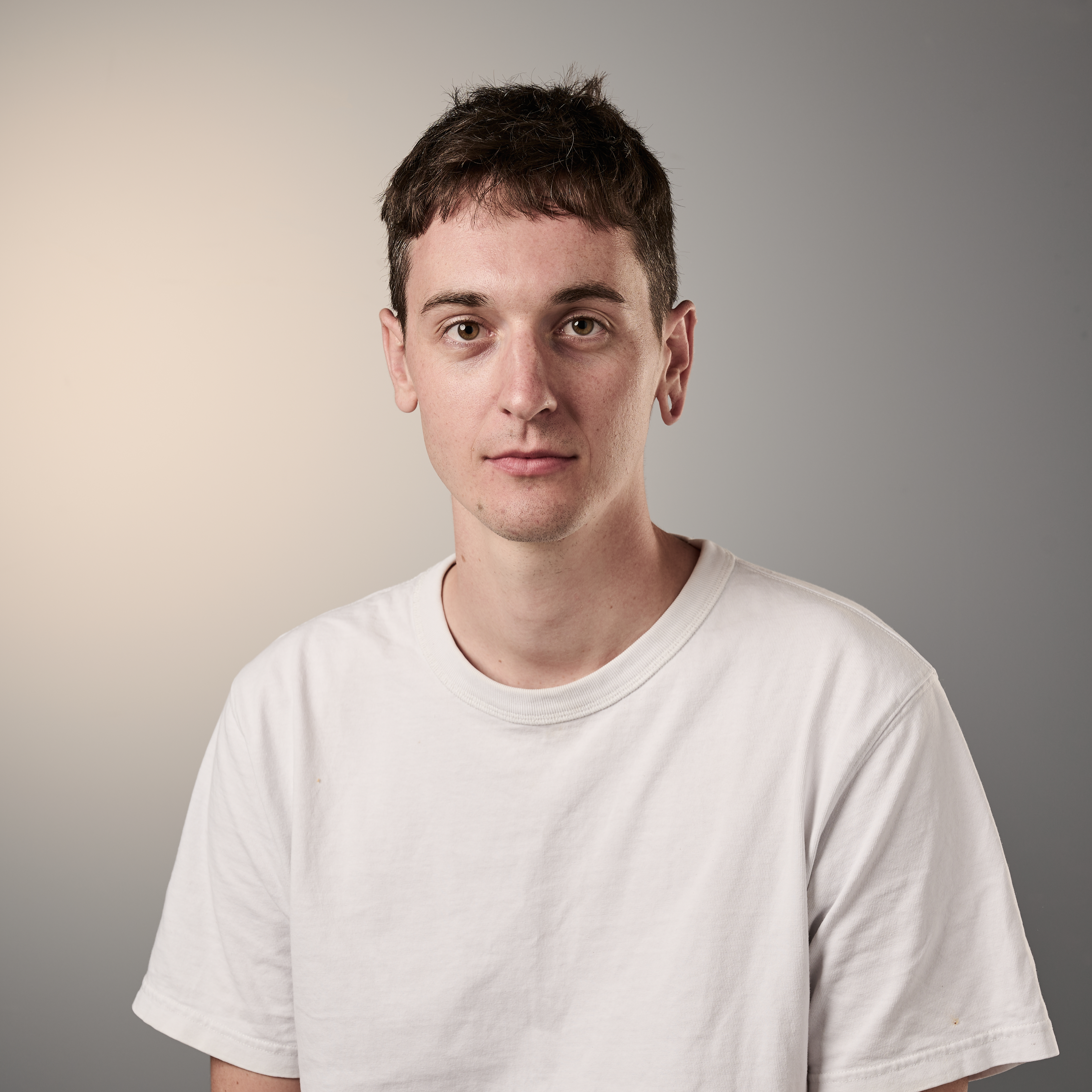
Tom joined Cycling Weekly as a news and features writer in the summer of 2022, having previously contributed as a freelancer. He is fluent in French and Spanish, and holds a master's degree in International Journalism. Since 2020, he has been the host of The TT Podcast, offering race analysis and rider interviews.
An enthusiastic cyclist himself, Tom likes it most when the road goes uphill, and actively seeks out double-figure gradients on his rides. His best result is 28th in a hill-climb competition, albeit out of 40 entrants.
You must confirm your public display name before commenting
Please logout and then login again, you will then be prompted to enter your display name.